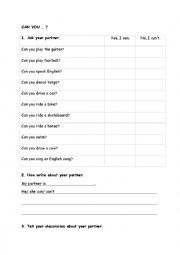
|
questions with can
Very simple questions for beginners to ask a partner/ friend and practice short answers. I uses this for my students with special needs. Let them show their skills at the end of the lesson. Can they really dance tango, draw a cow or sing an English song?
Level: elementary
Age: 8-12
Type: worksheet
Downloads: 3
|
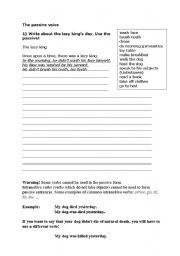
|
The lazy king - passive voice
This is a little grammar exercise on a lazy king who was very passive ... . The students have to form sentences in the simple past passive. There is a short explanation on intransitive verbs, too. The dialogue (second part of the worksheet) can be acted out as a roleplay. Have fun!
Level: intermediate
Age: 11-17
Type: worksheet
Downloads: 6
|
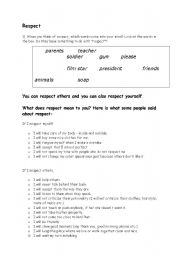
|
What does respect mean to you?
This is a nice way to speak about the students behaviour in the classroom and at home and use the Conditional I. Before reading the handout you could ask the students which words they associate with "respect" - maybe in their native language.
Level: intermediate
Age: 11-14
Type: worksheet
Downloads: 63
|
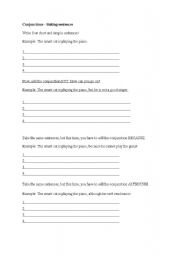
|
Conjunctions
Simple, but effective exercise on conjunctions. Students have to form simple sentences and add different conjunctions and a creative continuation for the sentence. So sorry that I couldn�t include the funny pictures I found on the web. Google for "cat playing piano/ guitar" and you will find brilliant funny photos to add to this worksheet. Sorry - ...
Level: elementary
Age: 10-12
Type: worksheet
Downloads: 2
|
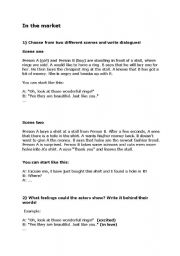
|
In the market/ feelings/ scetch
This worksheet helps students to write short and funny dialogues. They have to choose a feeling in which to say the lines of their little scene. It�s no fun, of course, without acting the scenes eventually.
Level: intermediate
Age: 12-17
Type: worksheet
Downloads: 9
|
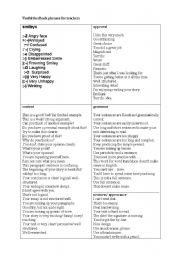
|
Useful phrases for feedback on texts
Useful phrases for teacher comments - including a few common smileys.
Level: intermediate
Age: 10-17
Type: others
Downloads: 30
|
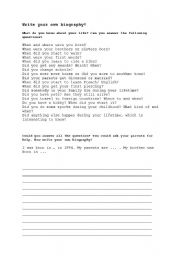
|
Write your own biography
Students (even young ones) can write their own biography with the help of a few questions.
Level: elementary
Age: 11-14
Type: worksheet
Downloads: 9
|
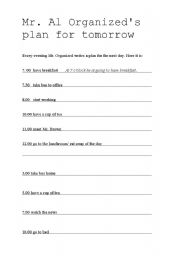
|
will future versus going to future
These worksheets will help to show the difference between "going to" (planned action) and "will-future" (spontaneous decicions). It should be some fun, when it turns out that Mr Impulse got dressed after he went to work! Somehow you cannot see page 2 in the preview - here students have to twiddle a pencil to find out, what Mr Impulse will do next.
Level: intermediate
Age: 11-17
Type: worksheet
Downloads: 28
|
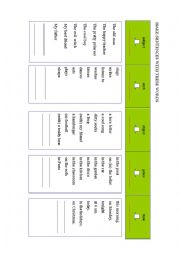
|
sentence building machine
Level: elementary
Age: 6-12
Type: worksheet
Downloads: 25
|
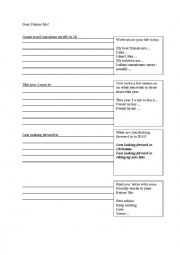
|
A letter to Future Me
This is a plan for writing a letter to the future. I use to give this letter to the student after their first six months of English. Then I collect them and give them back two years later. (They have forgotten all about it by then.) So they can see that their English has improved and sometimes they are surprised about what they wrote when they were...
Level: elementary
Age: 7-12
Type: worksheet
Downloads: 24
|